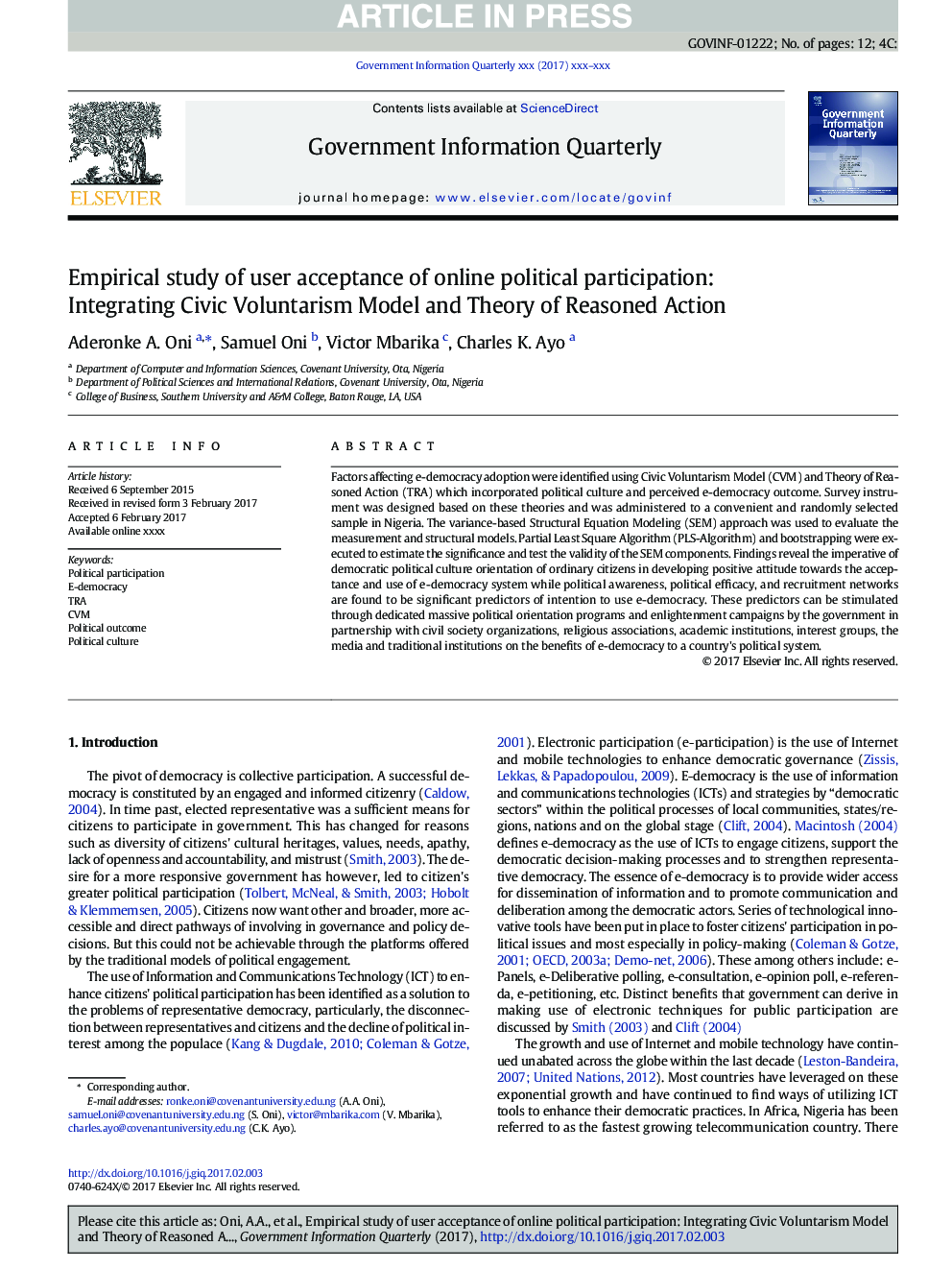| Article ID | Journal | Published Year | Pages | File Type |
|---|---|---|---|---|
| 5110625 | Government Information Quarterly | 2017 | 12 Pages |
Abstract
Factors affecting e-democracy adoption were identified using Civic Voluntarism Model (CVM) and Theory of Reasoned Action (TRA) which incorporated political culture and perceived e-democracy outcome. Survey instrument was designed based on these theories and was administered to a convenient and randomly selected sample in Nigeria. The variance-based Structural Equation Modeling (SEM) approach was used to evaluate the measurement and structural models. Partial Least Square Algorithm (PLS-Algorithm) and bootstrapping were executed to estimate the significance and test the validity of the SEM components. Findings reveal the imperative of democratic political culture orientation of ordinary citizens in developing positive attitude towards the acceptance and use of e-democracy system while political awareness, political efficacy, and recruitment networks are found to be significant predictors of intention to use e-democracy. These predictors can be stimulated through dedicated massive political orientation programs and enlightenment campaigns by the government in partnership with civil society organizations, religious associations, academic institutions, interest groups, the media and traditional institutions on the benefits of e-democracy to a country's political system.
Related Topics
Social Sciences and Humanities
Business, Management and Accounting
Business, Management and Accounting (General)
Authors
Aderonke A. Oni, Samuel Oni, Victor Mbarika, Charles K. Ayo,
